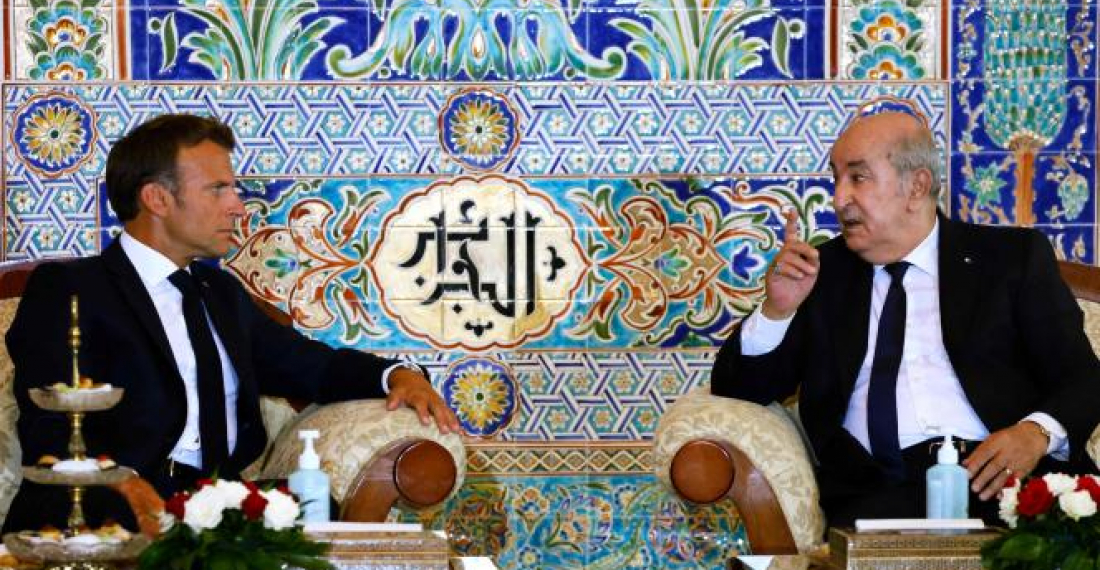French President Emmanuel Macron and his Algerian counterpart Abdelmadjid Tebboune Saturday declared a "new, irreversible dynamic of progress" in the relations between the two countries, at the end of a state visit by the French president to the former French colony.
The three-day visit comes less than two months after Algeria marked six decades of independence following 132 years of French rule and a devastating eight-year war. It also comes as European powers scramble to replace Russian energy imports -- including with supplies from Algeria, Africa's top gas exporter, which in turn is seeking to expand its clout in North Africa and the Sahel.
In their joint declaration on Saturday, the two leaders said "France and Algeria have decided to open a new era ... laying the foundation for a renewed partnership expressed through a concrete and constructive approach, focused on future projects and youth."
Algerian President Abdelmadjid Tebboune had on Thursday hailed "promising prospects for improving the special partnership" between the two countries.
The baggage of history weighs heavily on Franco-Algerian relations. Speaking at a joint press conference with his Algerian counterpart on Thursday evening, Macron -- the first French president to be born since Algerian independence in 1962 -- said that "we didn't the choose the past, we inherited it".
"We must look at it and recognise it, but we have a responsibility to build our future for ourselves and our youth," he said.
Ties between Paris and Algiers have seen repeated crises over the years.
They had been particularly tense since last year when Macron questioned Algeria's existence as a nation before the French occupation and accused the government of fomenting "hatred towards France".
Tebboune withdrew his country's ambassador in response and banned French military aircraft from its airspace.
But Macron's office said he "regretted" the misunderstandings caused by his comments, and his aides believe both sides have moved on, noting the resumption of normal diplomatic relations and overflights to French army bases in sub-Saharan Africa.
The French president announced Thursday evening that the two countries would set up a joint French-Algerian commission of historians to study archives on France's colonial rule in Algeria. This would include the devastating eight-year independence war which left hundreds of thousands, mostly Algerians, dead.
Analysts say Macron's visit comes as Algeria is seeking a bigger role in the region, buoyed by surging energy prices that have filled the coffers of Africa's top natural gas exporter.
source: commonspace.eu with France24 (Paris) and agencies
photo: French President Emmanuel Macron and his Algerian counterpart Abdelmadjid Tebboune meeting in Algiers on 27 August 2022







